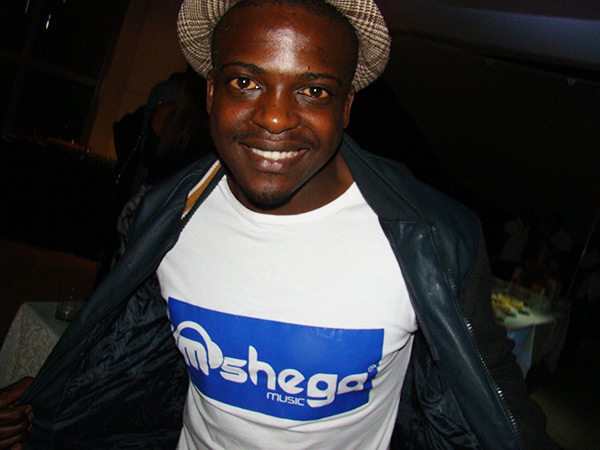
1's and 2's winner DJ Mshega knows his stuff for sure. For the first time I properly understand exactly what a DJ does. I've always known in broad strokes but after chatting to him at the SABC Upfronts recently I have a new added understanding:
Tashi: What is the secret? What is the key? What's the biggest challenge of being a DJ?
DJ Mshego: It's that you're always playing music to different people, different crowds, different backgrounds. How do you get to understand? It's just a matter of testing different sounds and also doing your research before you go to a certain area.
For example, if I play in Angola - I have to play what's big in Angola right now. At the same time you have to be very careful that you don't go to Angola and give them what they already know. It needs to be fresh but then disguise it nicely with their stuff so that it's not too foreign or you'll lose them entirely. They either love it or they don't.
That's why, as a DJ, you have to have a good priority of music styles and genres - like if you try this new school sound, if it's not working you go back to the old school and you play around and you see: "Okay, they're here and you improvise as you go."
I'd say the first five tracks are the most important because that's when you test out - that's when you find: "This is where they're at,", "This is what they like,". You stick to that and make sure you take it to another level.
Tashi: Do you think it's why you won the show? Because you can tap into that?
DJ Mshega: It was definitely one of the things I did take into consideration by saying: "Hey, it's a competition but I'm not playing for the judges only. It's for South Africa. Nothing was random, it's all calculated.
The vocals, the lyrics, whatever you write, you must make it simple. You can write it in fancy English and everything like that but that's when you lose people because the majority of people might not understand.
You need something that's very simple and understandable, that a white person understands, a black person, an Indian person can understand. If it's English and if it's vernac. also - you must be careful to use simple Zulu - for your Sotho guys they don't know deep Zulu - all that is very important in making a hit song.
Tashi: What was the biggest challenge being on the show?
DJ Mshega: The cameras are in your face - all the time. Making music is something for creatives - you need that cool space where you're comfortable, where you can explore your mind. If you're in an environment that's closed and all the cameras and lighting - it does affect your mood.
Not being in your space and still having to deliver, it's very stressful because you're distracted by all these things AND they limit your time so you have to make it in two hours.
And you don't want to complain at the same time because you're gonna seem like that complaining guy so you just have to make the best of the circumstances around you. It was hard - especially because you know you can do better if you were given a day - or even six more hours.
It helps if you have a production background because you know how to leave out unnecessary things - you know how to get straight to the point. That helped me a lot - I stuck to the point. Just stick to the point, forget about your build-ups or how it ends and go to the heart of the song.
Tashi: How did you get into Dj'ing?
DJ Mshega: I wanted to be an architect - then, one day, my late brother Sizwe came to my house with a turntable - I didn't know what it was at the time and thought: "Okay, this is interesting." He played a record and there was music all around me but I never noticed and I was like: "Hey, what is this?" I was drawn immediately. When he was out I would sneak into his room and play around - not knowing what I was doing - I was 15. I thought: "What is this? I wanna do this?"
Shortly after my brother passed on - he was 19 at the time - he died during the meningitis epidemic so I took it upon myself - the day we laid him to rest, I thought: "You know what? I'm going to pick up from where he left off."